Abstract:
Recently, deep learning-based image compression has made significant progresses, and has achieved better rate-distortion (R-D) performance than the latest traditional met...Show MoreMetadata
Abstract:
Recently, deep learning-based image compression has made significant progresses, and has achieved better rate-distortion (R-D) performance than the latest traditional method, H.266/VVC, in both MS-SSIM metric and the more challenging PSNR metric. However, a major problem is that the complexities of many leading learned schemes are too high. In this paper, we propose an efficient and effective image coding framework, which achieves similar R-D performance with lower complexity than the state of the art. First, we develop an improved multi-scale residual block (MSRB) that can expand the receptive field and capture global information more efficiently, which further reduces the spatial correlation of the latent representations. Second, an importance scaling network is introduced to directly scale the latents to achieve content-adaptive bit allocation without sending side information, which is more flexible than previous importance map methods. Third, we apply a post-quantization filter (PQF) to reduce the quantization error, motivated by the Sample Adaptive Offset (SAO) filter in video coding. Moreover, our experiments show that the performance of the system is less sensitive to the complexity of the decoder. Therefore, we design an asymmetric paradigm, in which the encoder employs three stages of MSRBs to improve the learning capacity, whereas the decoder only uses one stage of MSRB, which reduces the decoder complexity and still yields satisfactory performance. Experimental results show that compared to the state-of-the-art method, the encoding and decoding time of the proposed method are about 17 times faster, and the R-D performance is only reduced by about 1% on both Kodak and Tecnick-40 datasets, which is still better than H.266/VVC(4:4:4) and other leading learning-based methods. Our source code is publicly available at https://github.com/fengyurenpingsheng.
Published in: IEEE Transactions on Circuits and Systems for Video Technology ( Volume: 33, Issue: 8, August 2023)
Funding Agency:
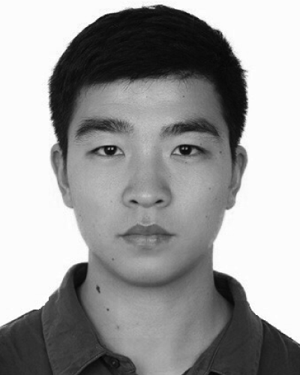
School of Microelectronics, Xi’an Jiaotong University, Xi’an, China
Haisheng Fu received the B.S. degree in automation engineering from Henan Polytechnic University, China. He is currently pursuing the Ph.D. degree in electronic science and technology with Xi’an Jiaotong University, Xi’an. He is also a Visiting Student with Simon Fraser University, Canada. His research interests include machine learning, image and video compression, deep learning, and VLSI design.
Haisheng Fu received the B.S. degree in automation engineering from Henan Polytechnic University, China. He is currently pursuing the Ph.D. degree in electronic science and technology with Xi’an Jiaotong University, Xi’an. He is also a Visiting Student with Simon Fraser University, Canada. His research interests include machine learning, image and video compression, deep learning, and VLSI design.View more
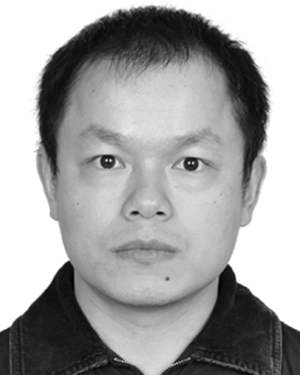
School of Microelectronics, Xi’an Jiaotong University, Xi’an, China
Feng Liang received the B.E. degree from Zhengzhou University and the M.E. and Ph.D. degrees from Xi’an Jiaotong University. He is currently a Professor with the Microelectronics School, Xi’an Jiaotong University. His current research interests include signal processing, machine learning, VLSI design, CIM, and computer architecture.
Feng Liang received the B.E. degree from Zhengzhou University and the M.E. and Ph.D. degrees from Xi’an Jiaotong University. He is currently a Professor with the Microelectronics School, Xi’an Jiaotong University. His current research interests include signal processing, machine learning, VLSI design, CIM, and computer architecture.View more
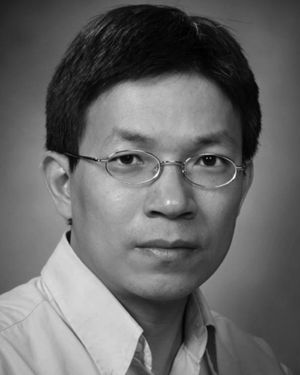
School of Engineering Science, Simon Fraser University, Burnaby, BC, Canada
Jie Liang (Senior Member, IEEE) received the B.E. and M.E. degrees from Xi’an Jiaotong University, China, in 1992 and 1995, respectively, the M.E. degree from the National University of Singapore in 1998, and the Ph.D. degree from Johns Hopkins University, USA, in 2003.
From 2003 to 2004, he worked with the Video Codec Group, Microsoft Digital Media Division. Since May 2004, he has been with the School of Engineering Scien...Show More
Jie Liang (Senior Member, IEEE) received the B.E. and M.E. degrees from Xi’an Jiaotong University, China, in 1992 and 1995, respectively, the M.E. degree from the National University of Singapore in 1998, and the Ph.D. degree from Johns Hopkins University, USA, in 2003.
From 2003 to 2004, he worked with the Video Codec Group, Microsoft Digital Media Division. Since May 2004, he has been with the School of Engineering Scien...View more
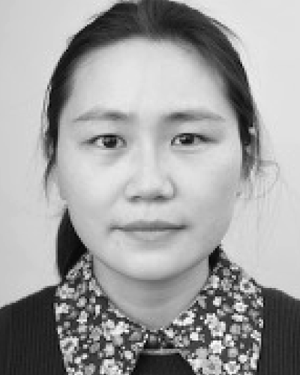
School of Engineering Science, Simon Fraser University, Burnaby, BC, Canada
Binglin Li received the B.Eng. degree in communication engineering from Wuhan University, Wuhan, China, in 2014, and the M.Sc. degree in engineering from the University of Manitoba, Winnipeg, Canada, in 2016. She is currently pursuing the Ph.D. degree with the Multimedia Laboratory, School of Engineering Science, Simon Fraser University, Burnaby, Canada. Since 2018, she has been a Research Assistant with the Multimedia La...Show More
Binglin Li received the B.Eng. degree in communication engineering from Wuhan University, Wuhan, China, in 2014, and the M.Sc. degree in engineering from the University of Manitoba, Winnipeg, Canada, in 2016. She is currently pursuing the Ph.D. degree with the Multimedia Laboratory, School of Engineering Science, Simon Fraser University, Burnaby, Canada. Since 2018, she has been a Research Assistant with the Multimedia La...View more

School of Microelectronics, Xi’an Jiaotong University, Xi’an, China
Guohe Zhang received the B.S. and Ph.D. degrees in electronics science and technology from Xi’an Jiaotong University, Shaanxi, China, in 2003 and 2008, respectively. In 2009, he joined as a Lecturer the School of Electronic and Information Engineering. He was promoted to an Associated Professor in 2013. From 2009 to 2011, he was a Post-Doctoral Researcher with the School of Nuclear Science and Technology, Xi’an Jiaotong U...Show More
Guohe Zhang received the B.S. and Ph.D. degrees in electronics science and technology from Xi’an Jiaotong University, Shaanxi, China, in 2003 and 2008, respectively. In 2009, he joined as a Lecturer the School of Electronic and Information Engineering. He was promoted to an Associated Professor in 2013. From 2009 to 2011, he was a Post-Doctoral Researcher with the School of Nuclear Science and Technology, Xi’an Jiaotong U...View more
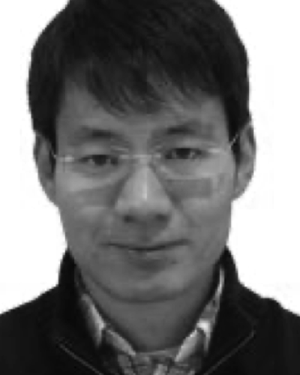
Google Inc., Mountain View, CA, USA
Jingning Han (Senior Member, IEEE) received the B.S. degree in electrical engineering from Tsinghua University, Beijing, China, in 2007, and the M.S. and Ph.D. degrees in electrical and computer engineering from the University of California at Santa Barbara, Santa Barbara, CA, USA, in 2008 and 2012, respectively. He joined the WebM Codec Team, Google, Mountain View, CA, USA, in 2012, where he is currently the Main Archite...Show More
Jingning Han (Senior Member, IEEE) received the B.S. degree in electrical engineering from Tsinghua University, Beijing, China, in 2007, and the M.S. and Ph.D. degrees in electrical and computer engineering from the University of California at Santa Barbara, Santa Barbara, CA, USA, in 2008 and 2012, respectively. He joined the WebM Codec Team, Google, Mountain View, CA, USA, in 2012, where he is currently the Main Archite...View more

School of Microelectronics, Xi’an Jiaotong University, Xi’an, China
Haisheng Fu received the B.S. degree in automation engineering from Henan Polytechnic University, China. He is currently pursuing the Ph.D. degree in electronic science and technology with Xi’an Jiaotong University, Xi’an. He is also a Visiting Student with Simon Fraser University, Canada. His research interests include machine learning, image and video compression, deep learning, and VLSI design.
Haisheng Fu received the B.S. degree in automation engineering from Henan Polytechnic University, China. He is currently pursuing the Ph.D. degree in electronic science and technology with Xi’an Jiaotong University, Xi’an. He is also a Visiting Student with Simon Fraser University, Canada. His research interests include machine learning, image and video compression, deep learning, and VLSI design.View more

School of Microelectronics, Xi’an Jiaotong University, Xi’an, China
Feng Liang received the B.E. degree from Zhengzhou University and the M.E. and Ph.D. degrees from Xi’an Jiaotong University. He is currently a Professor with the Microelectronics School, Xi’an Jiaotong University. His current research interests include signal processing, machine learning, VLSI design, CIM, and computer architecture.
Feng Liang received the B.E. degree from Zhengzhou University and the M.E. and Ph.D. degrees from Xi’an Jiaotong University. He is currently a Professor with the Microelectronics School, Xi’an Jiaotong University. His current research interests include signal processing, machine learning, VLSI design, CIM, and computer architecture.View more

School of Engineering Science, Simon Fraser University, Burnaby, BC, Canada
Jie Liang (Senior Member, IEEE) received the B.E. and M.E. degrees from Xi’an Jiaotong University, China, in 1992 and 1995, respectively, the M.E. degree from the National University of Singapore in 1998, and the Ph.D. degree from Johns Hopkins University, USA, in 2003.
From 2003 to 2004, he worked with the Video Codec Group, Microsoft Digital Media Division. Since May 2004, he has been with the School of Engineering Science, Simon Fraser University, Canada, where he is currently a Professor. His research interests include image and video processing, computer vision, and deep learning. He received the 2014 IEEE Transactions on Circuits and Systems for Video Technology Best Associate Editor Award, the 2014 SFU Dean of Graduate Studies Award for Excellence in Leadership, and the 2015 Canada NSERC Discovery Accelerator Supplements (DAS) Award. He had served as an Associate Editor for several journals, including IEEE Transactions on Image Processing, IEEE Transactions on Circuits and Systems for Video Technology, and IEEE Signal Processing Letters. He has also served on three IEEE technical committees.
Jie Liang (Senior Member, IEEE) received the B.E. and M.E. degrees from Xi’an Jiaotong University, China, in 1992 and 1995, respectively, the M.E. degree from the National University of Singapore in 1998, and the Ph.D. degree from Johns Hopkins University, USA, in 2003.
From 2003 to 2004, he worked with the Video Codec Group, Microsoft Digital Media Division. Since May 2004, he has been with the School of Engineering Science, Simon Fraser University, Canada, where he is currently a Professor. His research interests include image and video processing, computer vision, and deep learning. He received the 2014 IEEE Transactions on Circuits and Systems for Video Technology Best Associate Editor Award, the 2014 SFU Dean of Graduate Studies Award for Excellence in Leadership, and the 2015 Canada NSERC Discovery Accelerator Supplements (DAS) Award. He had served as an Associate Editor for several journals, including IEEE Transactions on Image Processing, IEEE Transactions on Circuits and Systems for Video Technology, and IEEE Signal Processing Letters. He has also served on three IEEE technical committees.View more

School of Engineering Science, Simon Fraser University, Burnaby, BC, Canada
Binglin Li received the B.Eng. degree in communication engineering from Wuhan University, Wuhan, China, in 2014, and the M.Sc. degree in engineering from the University of Manitoba, Winnipeg, Canada, in 2016. She is currently pursuing the Ph.D. degree with the Multimedia Laboratory, School of Engineering Science, Simon Fraser University, Burnaby, Canada. Since 2018, she has been a Research Assistant with the Multimedia Laboratory, School of Engineering Science, Simon Fraser University. Her research interests include deep learning-based image bbreak compression and computer vision.
Binglin Li received the B.Eng. degree in communication engineering from Wuhan University, Wuhan, China, in 2014, and the M.Sc. degree in engineering from the University of Manitoba, Winnipeg, Canada, in 2016. She is currently pursuing the Ph.D. degree with the Multimedia Laboratory, School of Engineering Science, Simon Fraser University, Burnaby, Canada. Since 2018, she has been a Research Assistant with the Multimedia Laboratory, School of Engineering Science, Simon Fraser University. Her research interests include deep learning-based image bbreak compression and computer vision.View more

School of Microelectronics, Xi’an Jiaotong University, Xi’an, China
Guohe Zhang received the B.S. and Ph.D. degrees in electronics science and technology from Xi’an Jiaotong University, Shaanxi, China, in 2003 and 2008, respectively. In 2009, he joined as a Lecturer the School of Electronic and Information Engineering. He was promoted to an Associated Professor in 2013. From 2009 to 2011, he was a Post-Doctoral Researcher with the School of Nuclear Science and Technology, Xi’an Jiaotong University. From February 2013 to May 2013, he had a short term visiting to the University of Liverpool, U.K. He is currently an Associate Professor with the School of Microelectronics, Xi’an Jiaotong University. His research interests include semiconductor device physics and modeling, and VLSI design and testing.
Guohe Zhang received the B.S. and Ph.D. degrees in electronics science and technology from Xi’an Jiaotong University, Shaanxi, China, in 2003 and 2008, respectively. In 2009, he joined as a Lecturer the School of Electronic and Information Engineering. He was promoted to an Associated Professor in 2013. From 2009 to 2011, he was a Post-Doctoral Researcher with the School of Nuclear Science and Technology, Xi’an Jiaotong University. From February 2013 to May 2013, he had a short term visiting to the University of Liverpool, U.K. He is currently an Associate Professor with the School of Microelectronics, Xi’an Jiaotong University. His research interests include semiconductor device physics and modeling, and VLSI design and testing.View more

Google Inc., Mountain View, CA, USA
Jingning Han (Senior Member, IEEE) received the B.S. degree in electrical engineering from Tsinghua University, Beijing, China, in 2007, and the M.S. and Ph.D. degrees in electrical and computer engineering from the University of California at Santa Barbara, Santa Barbara, CA, USA, in 2008 and 2012, respectively. He joined the WebM Codec Team, Google, Mountain View, CA, USA, in 2012, where he is currently the Main Architect of the VP9 and AV1 codecs, and leads the Software Video Codec Team. He has published more than 60 research articles. He holds more than 50 U.S. patents in the field of video coding. His research interests include video coding and computer science architecture. He received the Dissertation Fellowship from the Department of Electrical and Engineering, University of California at Santa Barbara, in 2012. He was a recipient of the Best Student Paper Award at the IEEE International Conference on Multimedia and Expo in 2012. He also received the IEEE Signal Processing Society Best Young Author Paper Award in 2015.
Jingning Han (Senior Member, IEEE) received the B.S. degree in electrical engineering from Tsinghua University, Beijing, China, in 2007, and the M.S. and Ph.D. degrees in electrical and computer engineering from the University of California at Santa Barbara, Santa Barbara, CA, USA, in 2008 and 2012, respectively. He joined the WebM Codec Team, Google, Mountain View, CA, USA, in 2012, where he is currently the Main Architect of the VP9 and AV1 codecs, and leads the Software Video Codec Team. He has published more than 60 research articles. He holds more than 50 U.S. patents in the field of video coding. His research interests include video coding and computer science architecture. He received the Dissertation Fellowship from the Department of Electrical and Engineering, University of California at Santa Barbara, in 2012. He was a recipient of the Best Student Paper Award at the IEEE International Conference on Multimedia and Expo in 2012. He also received the IEEE Signal Processing Society Best Young Author Paper Award in 2015.View more


